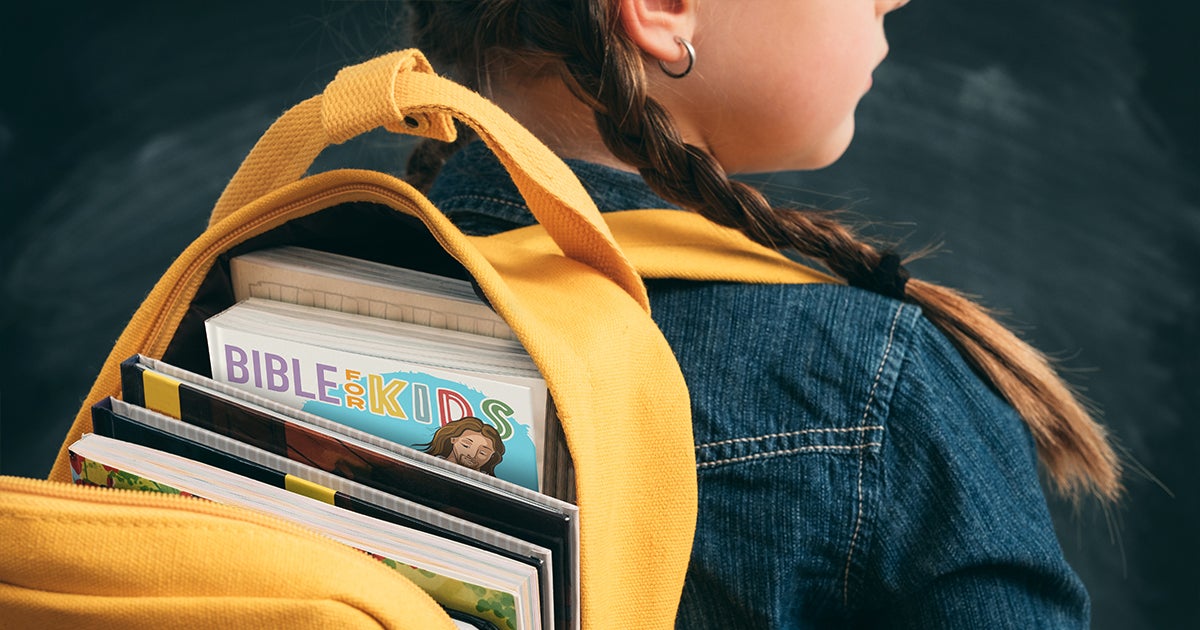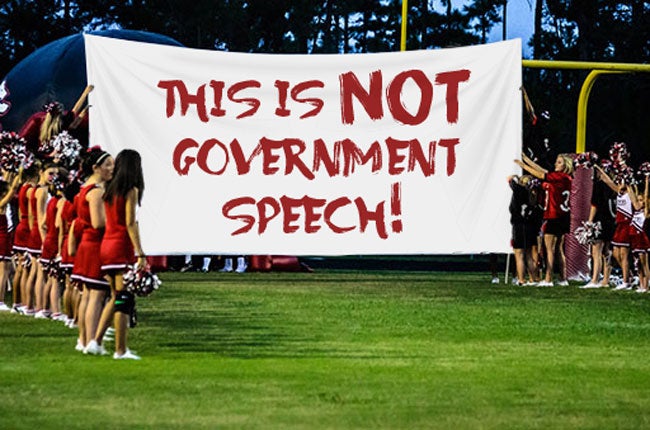
by Jorge Gomez • 6 min read
Fall classes are about to start soon, which means you’re getting ready for the back-to-school shopping frenzy, as you and your kids chase after notebooks, pencils, textbooks, uniforms, etc.
You wouldn’t want them showing up to class unprepared, right?
We share that feeling. The last thing we want are young students going to class without the proper tools for success – and that means every student of faith needs the essential information to defend their first freedom!
Too often, students of faith think that they can’t bring their religious beliefs into the classroom. Why? Because opponents of religious freedom have mistakenly told America’s students that they must leave their faith behind when they enter the school – or at the very least, tuck away their religious convictions to the bottom of their backpacks.
Like, all the way at the bottom.
Fortunately, we can chalk one up for some real truth. And that is, that students – as well as teachers and staff – do, in fact, have First Amendment religious rights inside public schools.
So before starting the upcoming school year on the wrong foot, we’re keeping you one step ahead by offering you three religious freedom essentials to equip your children to protect their constitutional right to live out their faith.
Fifty years ago, in Tinker v. Des Moines (1969), the U.S. Supreme Court declared that neither teachers nor students “shed their constitutional rights to freedom of speech or expression at the schoolhouse gate.”
That precedent, as well as federal law, prohibit a school district and its employees from being hostile or from discriminating against students who choose to express or live out their religious beliefs. In essence, this means that students can engage in religious practices and live out their faith when they’re on school grounds.
For example, it’s completely within the bounds of the law and the Constitution for students to:
And those aren’t the only protected religious activities.
In our Religious Liberty Protection Kit for Students and Teachers, you’ll find a detailed list of what, when, and how your children engage in religious speech consistent with the Constitution and the law.
America’s schools and educational institutions are no place for censorship. FLI attorneys, like former school teacher, Keisha Russell, fight for students’ rights to live out their faith freely and openly. Give today.
In many cases, school district officials or public-school administrators justify suppression of students’ religious expression by arguing that it might be seen as the school “establishing a religion.”
Here’s how you can respond to that claim: Government speech (the speech of the school district and its employees) is not the same as private student speech.

There some limits that apply to government speech, but a student who lives out their faith on campus and speaks a religious viewpoint is doing so from their standing as a private citizen, not as an agent of the state. That’s an important difference to understand.
In the end, the Constitution fully protects a student’s private religious expression because the proper role of a school is to remain neutral and accommodating toward private expressions of religious belief.
For example, First Liberty Institute successfully defended the Kountze Texas Cheerleaders on various occasions and affirmed their right to display religious messages in run-through banners during football games. Despite opponents’ obstinate efforts to claim that this is not protected speech, the First Amendment protects these cheerleaders because it is their right to express a religious message.
Each year, parents and families prepare for the important, once-in-a-lifetime moment that is your child’s graduation. For many students across America, graduation is all the more special because they get the privilege of delivering a speech during their graduation ceremony.
Sadly, we see too many religious freedom violations happen during graduation season.
At the last minute, school officials often get nervous about students making religious references in their speech – and they choose to censor or edit the remarks, which only leads to students and their families feeling silenced, shamed and disappointed.
For years, we’ve successfully defended students who were threatened or punished for living out their faith at graduation:
Censorship is not part of America’s traditions or values, especially not in our nation’s educational institutions where freedom of thought and diverse expression should be encouraged. So, if your right to express your faith comes under attack, or if you see it happening to your friends, your classmates or your children or grandchildren, make us your first call. Our legal team is first in the fight so that you and all students across America can live out their faith freely and openly.
Go! Live out your faith in school. Keisha Russell, one of FLI’s fierce lawyers, is ready to fight for you. Her passion for religious freedom is most evident when she’s defending the constitutional rights of America’s students. Learn more about Keisha.